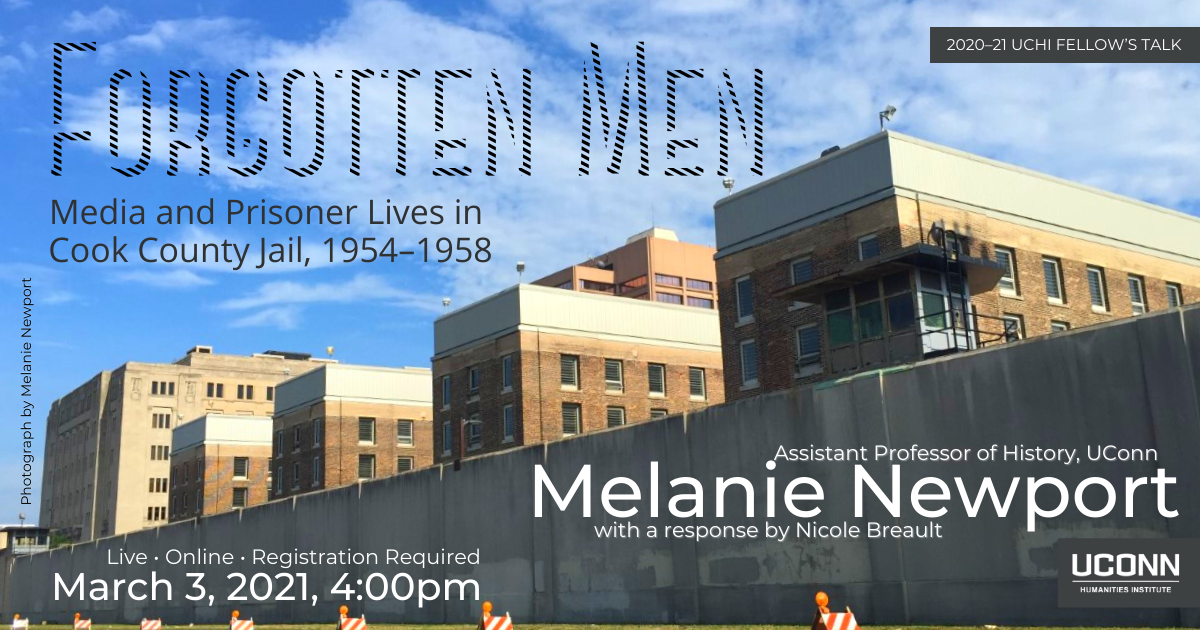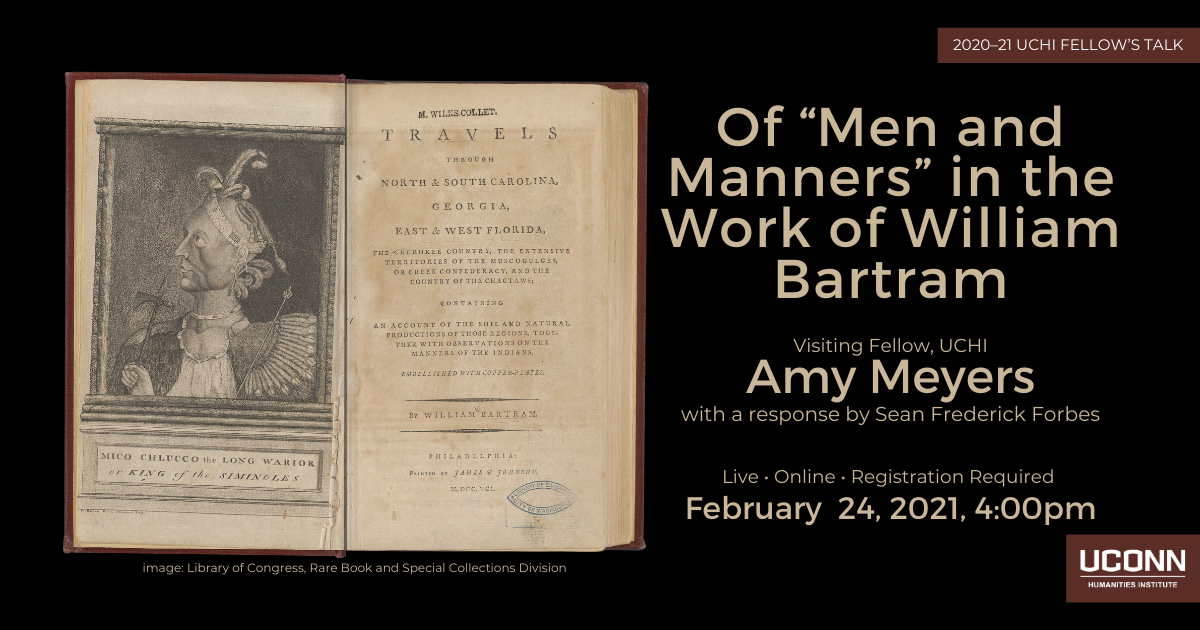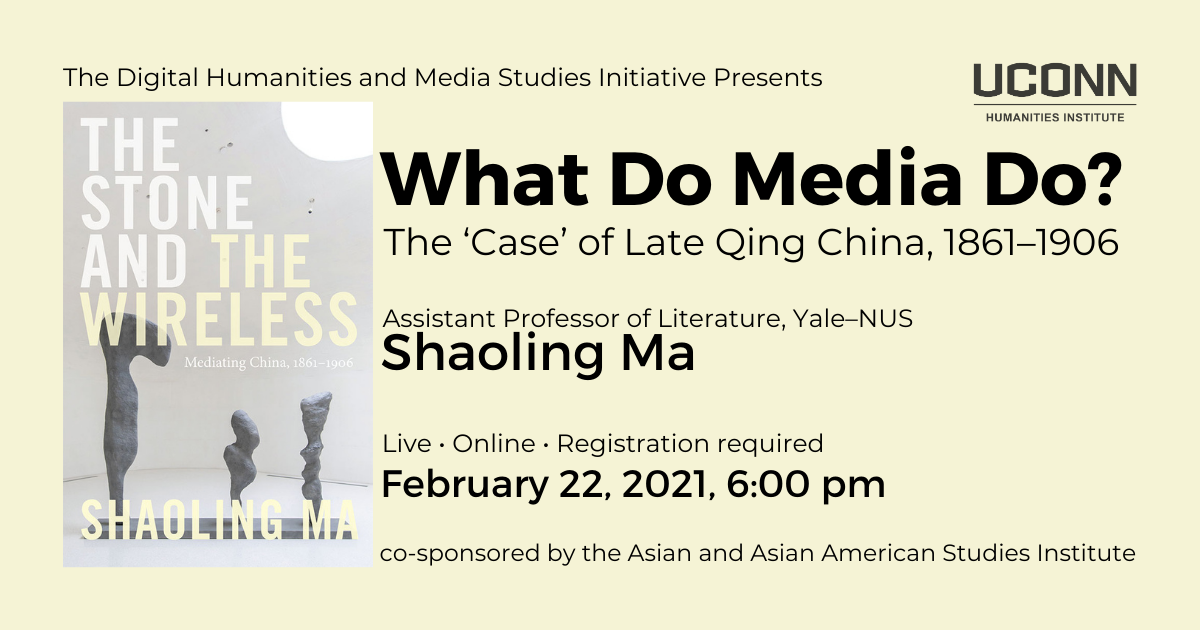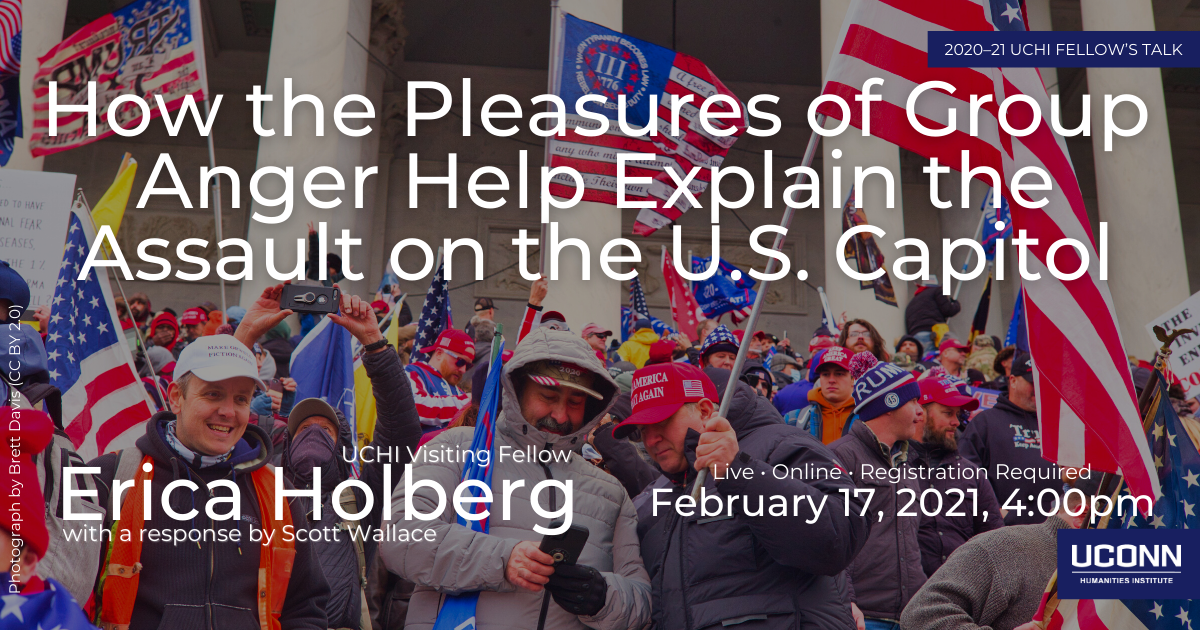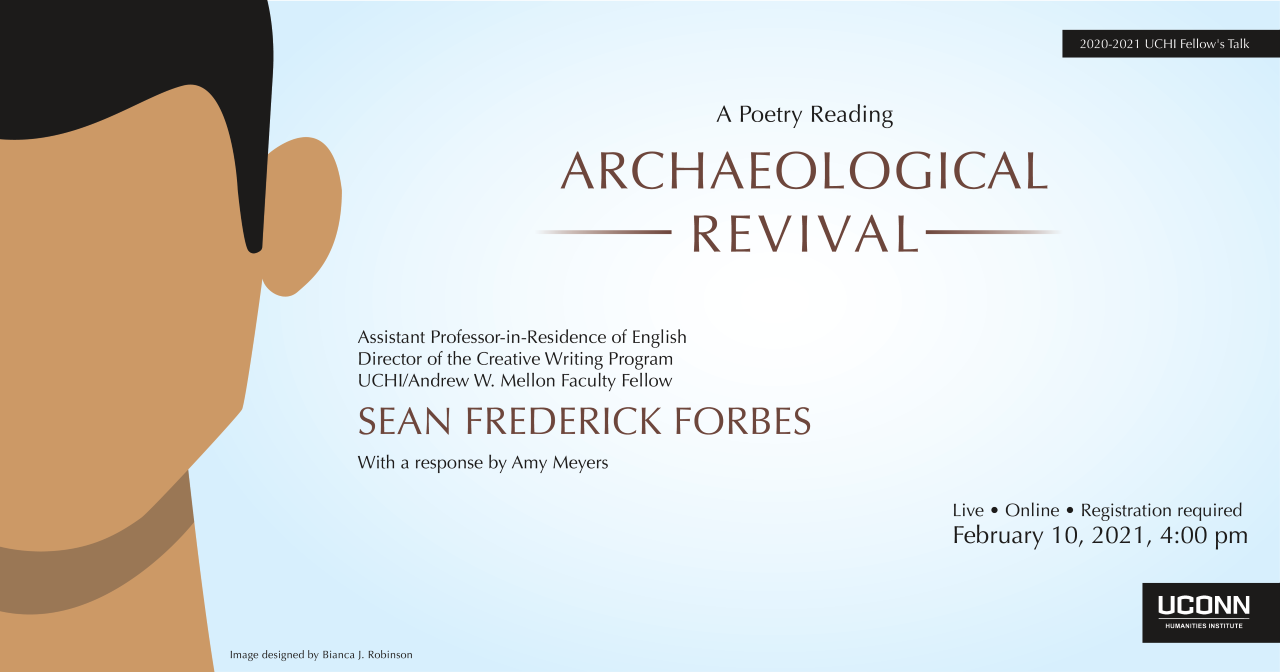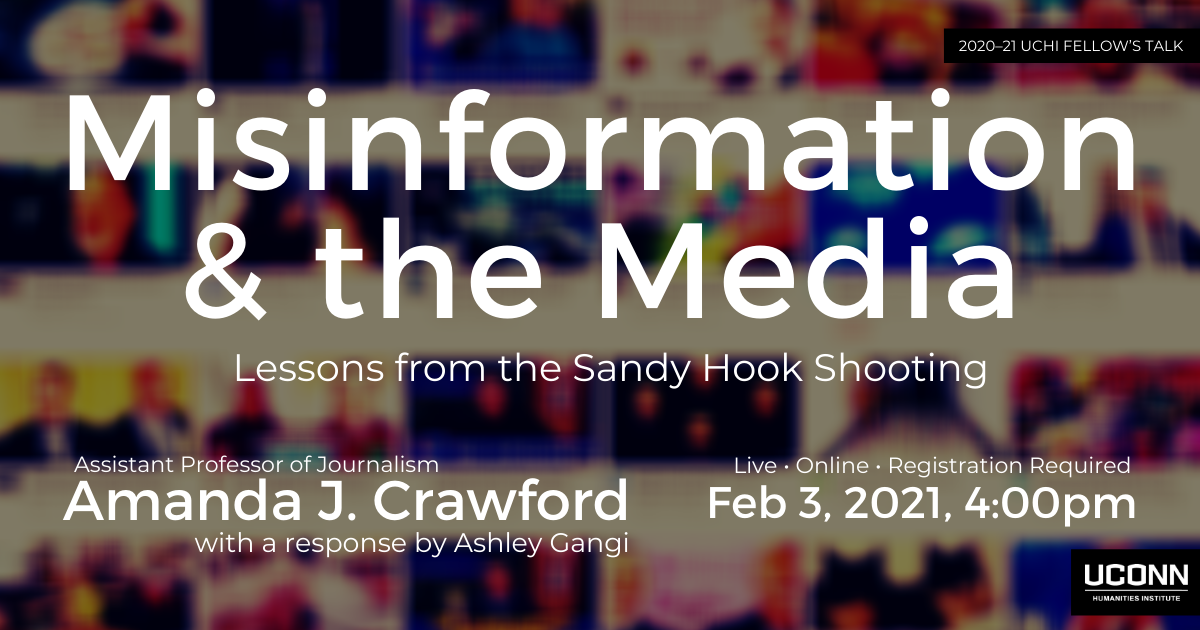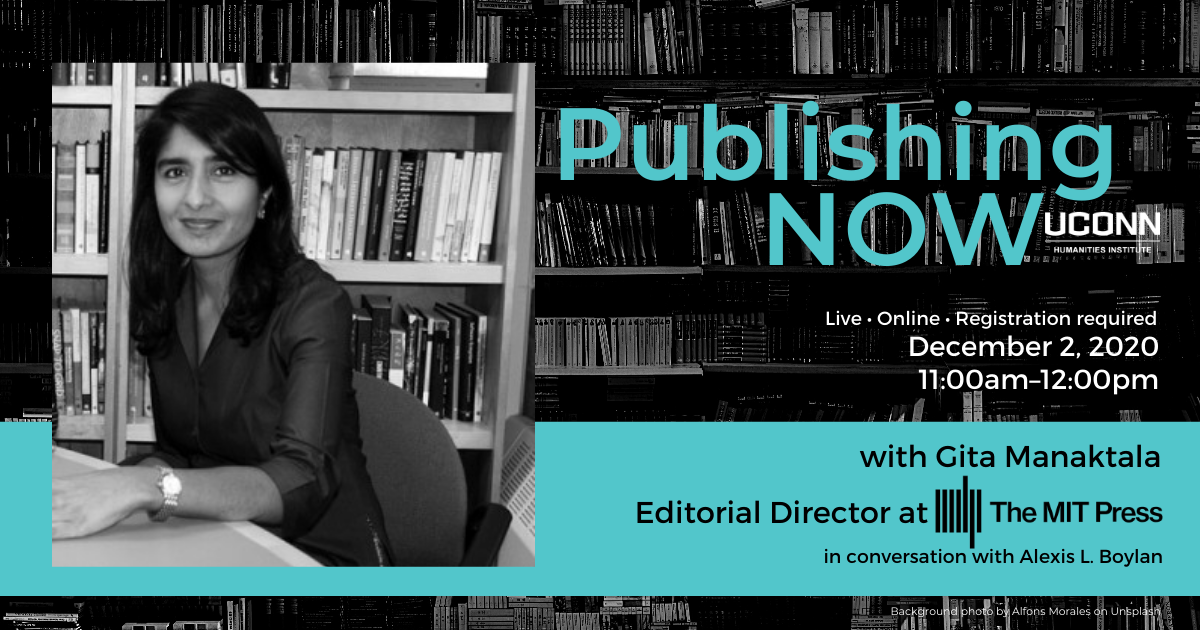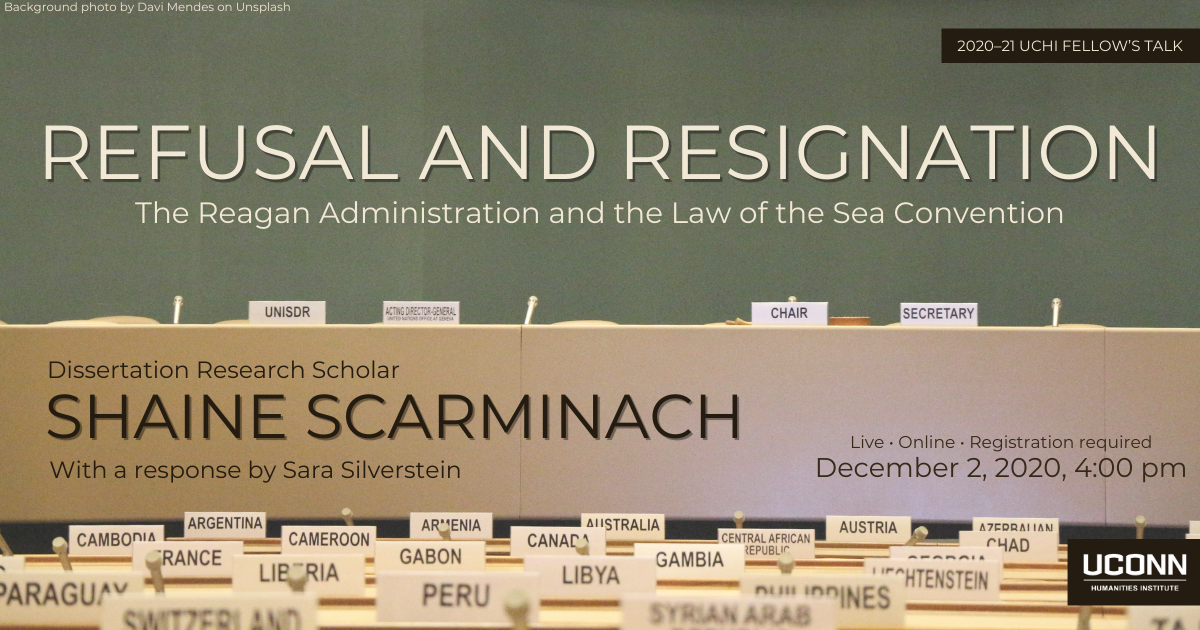Forgotten Men: Media and Prisoner Lives in Cook County Jail, 1954–1958
Melanie Newport (Assistant Professor of History, UConn)
with a response by Nicole Breault
Wednesday, March 3, 2021, 4:00pm (Online—Register here)
Early in the COVID crisis, Cook County Jail in Chicago gained renown as one of the nation’s top sites of infection. Amid protests over the jail’s failure to protect the health and safety of prisoners, an incarcerated person put a note in the jail window: HELP. WE MATTER 2. A picture of the note became a symbol of prisoner humanity that was shared around the world.
This presentation places this act of resistance within a deeper history of prisoner life and struggle in one of the nation’s largest jails. Looking to a unique moment in the 1950s, this paper considers how prisoners—self-identified as “forgotten men”— used media, including a jail newspaper and a tv show, to assert their humanity and their visions for jail reform. As part of a larger study that considers how jail reform shaped the rise of mass incarceration, these sources show that incarcerated people participated in lively debates over the meanings and outcomes of jailing. Jailed people used media to assert their worthiness of participation in the postwar liberal project as they struggled to mitigate the harms of the nascent carceral state.
Melanie D. Newport is an assistant professor of history at UConn’s Hartford campus and affiliated faculty in American Studies and Urban and Community Studies. She holds a BA from Pacific Lutheran University, an MA from the University of Utah, and PhD from Temple University. Her current book project, under contract with University of Pennsylvania Press’ Politics and Culture in Modern America series, explores the political history of jail reform in Chicago from the 1830s to the present. Prior to joining the UConn Faculty in 2016, she taught at Temple University, Community College of Philadelphia, and Garden State Youth Correctional Facility. Newport’s work has been supported by the Center for the Humanities at Temple, the Black Metropolis Research Consortium, and the University of Illinois at Chicago and University of Chicago libraries.
Nicole Breault is a fifth-year doctoral candidate in the Department of History. Her research interests are in early American legal and social history with an emphasis on urban governance, institutions, gender, and space. She earned a B.A. from the University of Vermont and an M.A. from the University of Massachusetts Boston. Her research has been awarded fellowships at the Massachusetts Historical Society, New England Regional Fellowship Consortium, the Boston Athenæum, and the Huntington Library, as well as a Littleton-Griswold Grant by the American Historical Association. Currently, Nicole is the Draper Dissertation Fellow at the UConn Humanities Institute working on her dissertation “The Night Watch of Boston: Law and Governance in Eighteenth-Century British America.”
Registration is required for the event.
If you require accommodation to attend this event, please contact us at uchi@uconn.edu or by phone (860) 486-9057.
Watch now:
